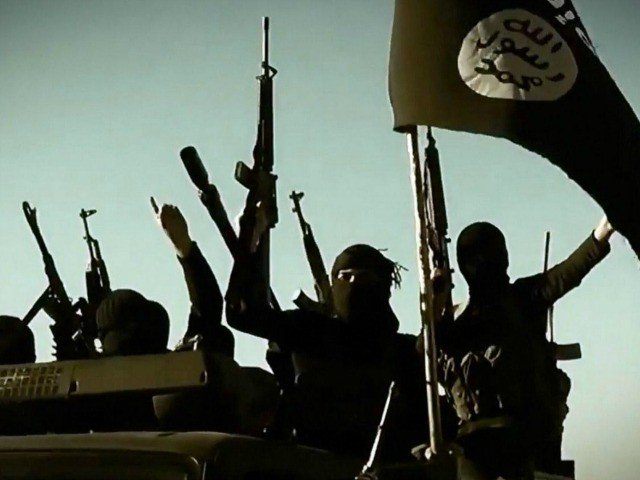The government of Panama has announced that it will become the first Latin American nation to join the United States-led coalition against the Islamic State in the Middle East.
The nation did not specify how it would aid the coalition, a particularly curious question given that Panama has no standing military force.
Panama, its government announced, “has decided to form part of the coalition of nations in the international community against the Islamic State group, which seeks to face the threats against international peace and security imposed by this group.” In its public statement announcing its participating in the battle against the terrorist group, whose most violent activity occurs in occupied areas of Syria and Iraq, the Panamanian government promised to participate in the effort “without compromising the principles of a nation that loves peace and promotes dialogue and peaceful coexistence among all peoples.”
The statement did not specify what, if anything, the Panamanian government will do to aid the effort, other than to “combat terrorism in all its forms and manifestations, as well as acts of indiscriminate violence, derived from religious, cultural, and ethnic intolerance.”
Panama will join a coalition nominally comprised of the United States, the United Kingdom, France, Germany, Spain, Italy, Belgium, Jordan, Canada, Bahrain, and others. The United Arab Emirates was listed as a member of the coalition until this week, when the Obama administration announced that the nation had opted against participating in airstrikes since December. While the coalition boasts a long list of nations, in reality, as of February 6, the United States is responsible for 946 airstrikes against the Islamic State in Syria. Jordan, Bahrain, Saudi Arabia, and UAE engaged in 79 airstrikes combined in the same amount of time.
Panama’s role in the fight against the Islamic State is especially uncertain as it does not have a standing military. It instead opted in 1990 to invest defense resources into a robust police force that has dramatically reduced the presence of violent drug cartels in the nation.
Given Panama’s lack of an army–and the distance between Panama and Islamic State-affected areas–some question whether the government’s decision to vocally condemn the group, and thus give them a reason to target Panama, was a wise one. Juan Carlos Hidalgo, an analyst for the Cato Institute, described the move to the Pan-American Post as “senseless” given the lack of a direct threat and no army to provide to the coalition.
Others disagree. In the same article, political analyst Renato Pereira notes that the Islamic State’s ideology necessarily includes the conquest of Panama, as “they have declared war on the world to impose their caliphate.” Panama controls the only canal connecting the Pacific and Atlantic Oceans, a coveted prize for a group like the Islamic State. “Panama also has a Cardinal designated by the Pope, and the war against ISIS is a religious war,” Pereira addd. “All Western countries must pronounce themselves against [ISIS].”
While focusing its efforts more prominently against nations with higher Muslim populations in the West, such as France or Australia, as well as the United States, the Islamic State has released videos in Spanish and engaged in recruitment in Latin America. In December, a Chilean Muslim convert was arrested for using the telephone application Whatsapp to recruit slave brides for the group. Another Chilean Islamic State member, Bastián Vázquez, is a prominent spokesman on the terrorist group’s English language outfit, Al Hayat Media.

COMMENTS
Please let us know if you're having issues with commenting.